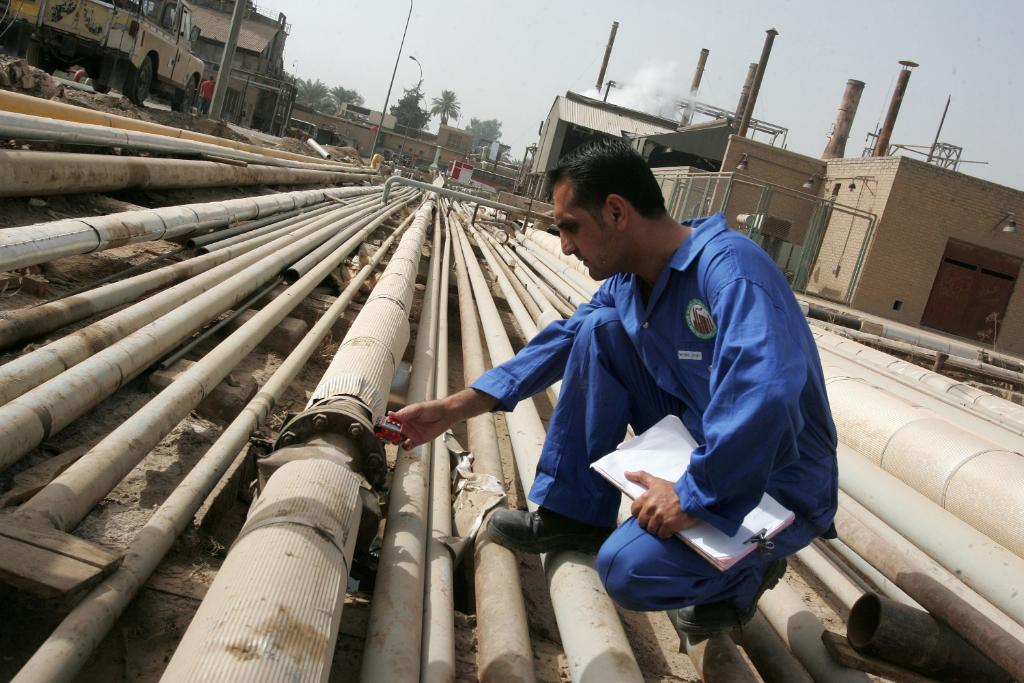Iraq claims Obama support in Kurdish oil dispute as Chevron inks deal with semi-autonomous region
An Iraqi worker examines gas emissions from an oil pipe at a refinery in Baghdad.
Iraqi Prime Minister Nouri al-Maliki claimed late Thursday to have received a message from US President Barack Obama indicating that the US sided with Baghdad in its deepening row with Kurdistan over the management of the northern region's oil resources, reported Reuters.
The message from Baghdad — which did not quote the alleged Obama letter directly or provide any copy of it — welcomed the "positive" US position on the matter, which it said was "in the same manner as the Iraqi government is seeking," said Reuters.
More from GlobalPost: Brazil's big deepwater oil push
News of the reported exchange came as Chevron on Thursday went public on a landmark oil deal with Iraq's resource-rich Kurdish region, reported The Chicago Tribune, calling the deal with America's second-biggest oil company a "coup for the Kurdistan Regional Government."
Maliki's office responded by saying Baghdad "will not allow the company to implement these contracts," said Reuters.
Iraq has been at odds with its semi-autonomous Kurdish region over the oil issue for quite some time now, and was incensed by the contracts secured there by another major US company, Exxon Mobil, last fall.
Maliki earlier asked Obama to intervene in the Exxon affair and Thursday's government statement called on the company to obey the "recommendations of the Iraqi government and the recommendations of the US administration regarding this issue," said ABC News.
Baghdad wants total control over Kurdistan's oil ventures, while Kurds argue that the constitution allows them to act unilaterally when it comes to the region's resources. Various political efforts to resolve the crisis have failed, partly because the issue serves as a proxy for a larger dispute over Kurdish calls for autonomy.
Chevron thinks Kurdistan holds "considerable promise" despite its political complications, said Reuters, while ABC observed "there is considerable incentive to work directly with the Kurds — unlike the flat fee the central government pays for each barrel of oil extracted, the Kurds offer lucrative contracts allowing developers to claim a share in reserves and the oil produced."
Iraq has secured contracts with 15 international energy companies since 2008, said Reuters, while Kurdistan has signed more than 50 "relatively small deals" since 2003, said ABC News.
The country's ambitious plans to develop its vast oil reserves — the fourth-largest in the world — may be hindered by poor infrastructure and political problems like the Kurdistan issue.
The story you just read is accessible and free to all because thousands of listeners and readers contribute to our nonprofit newsroom. We go deep to bring you the human-centered international reporting that you know you can trust. To do this work and to do it well, we rely on the support of our listeners. If you appreciated our coverage this year, if there was a story that made you pause or a song that moved you, would you consider making a gift to sustain our work through 2024 and beyond?
